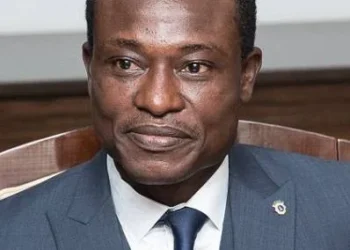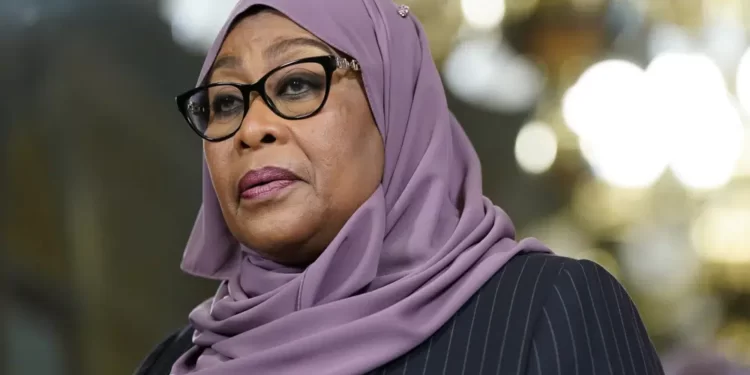An investigative journalist Richard Kwadwo Nyarko came out with a documentary on the alarming issue of water quality in Ghana, particularly concerning the growing threats from illegal mining (Galamsey) and its impact on both natural and processed water sources. The documentary arose from an earlier investigation into the contamination of rivers due to Galamsey and the inefficiencies of water treatment plans to purify contaminated water.
Nyarko explained that his concern over the rising activities of Galamsey, a form of illegal mining that contaminates water bodies, was the primary driver behind his work on the documentary. Nyarko had previously done a documentary called Poison Rivers, which revealed the severe impact of mining activities on the country’s water sources.
“Our water treatment systems were suffering, and so something ought to be done, then it also dawn on me that what about the other sources of drinking water in the county so when you talk about that, then your mind is adverted to sachet or bottled water because in Ghana, either you consume water that is flowing through your tap or the sachet or bottled water.”
Richard Kwadwo Nyarko an investigative Journalist
The reliance on processed water due to deteriorating natural sources raises several concerns about regulation and safety, which Nyarko explored in the documentary. Nyarko highlighted the importance of regulatory bodies particularly the Food and Drugs Authority (FDA).
“We had a variety of conversations that included the Food and Drugs Authority… because they are the regulators. They regulate the quality of water and the food we take in, so it was so crucial that we needed to get to them.”
Richard Kwadwo Nyarko an investigative Journalist
According to Nyarko, in his conversation with the FDA, the agency’s representative, Madam Lovelace Johnson, offered a mixed response about their efforts to ensure water safety. Madam Johnson acknowledged that significant strides had been made in regulating the production of sachet and bottled water. She pointed out that; “A lot of interventions have been put in place to ensure that what you consume in your home or what you find on the street is actually of good quality.” However, she also admitted the limitations of the FDA’s monitoring capabilities, especially given the rise of unregistered water production companies that operate without proper oversight.
Challenges of Monitoring Sachet Water Companies
One of the most concerning revelations in Nyarko’s documentary is the FDA’s admission that some sachet water production companies escape their monitoring system. These unregistered companies operate without the necessary certifications, putting unsuspecting consumers at risk.
“…Some of them have even taken the certified mark of the Ghana Standards Authority and the Food and Drugs Authority, and then they have embossed it on the sachet water.”
Richard Kwadwo Nyarko an investigative Journalist
This practice makes it difficult for consumers to distinguish between certified and uncertified products. He pointed out that even in major cities like Accra, “it is not all of them that have been certified.” Consumers, therefore, face the risk of purchasing and consuming potentially unsafe water products.
Ghana Water Company’s Position
In addition to the issues surrounding sachet and bottled water, Nyarko also touched on the Ghana Water Company Limited (GWCL) and its ability to treat tap water for consumption. According to Nyarko, the company claimed that they can effectively treat the water that flows through taps, even citing international standards. He emphasized that; “Ghana’s treatment system is one of the best on the African continent.” However, despite these assurances, Nyarko questioned why many Ghanaians remain skeptical about drinking tap water. “I’m not sure the last time that you ever drank water that flowed through your tap,” he said, reflecting the hesitation many people have when it comes to relying on tap water for drinking purposes.
The Impact of Galamsey on Water Treatment
One of the key issues raised in the documentary is the challenge of removing heavy metals from water bodies contaminated by illegal mining activities. While the GWCL has made strides in treating water to remove pathogens, Nyarko revealed that scientists have warned about the company’s inability to remove heavy metals from the water.
Nyarko further noted that the concerns are given considering the level of contamination caused by Galamsey activities. These illegal mining operations occur at the “bellies of our rivers,” leading to high levels of heavy metal contamination that the water treatment methods cannot entirely address.
Ultimately, this leaves Ghanaians grappling with a difficult question. Can they trust the water they consume? Whether it is sachet, bottled, or tap water, each comes with its risks. While the FDA and GWCL have made efforts to ensure the safety of drinking water, the threat posed by unregistered water companies and the contamination caused by Galamsey continues to loom large. Nyarko emphasized the issue by acknowledging the difficult position many Ghanaians find themselves in. It then becomes a difficulty either towing one side or tilting to the other side he remarked, underscoring the uncertainty that surrounds the issue of water safety in the country.
In a country where clean drinking water is increasingly under threat, Nyarko’s position becomes a wake-up call. “Whether we go with the tap, the water that flows through our tap, or with the sachet water, it becomes a very serious hit he noted. As the country continues to battle illegal mining activities and seeks to improve regulatory oversight, Ghanaians remain in a precarious position, unsure about the safety of one of life’s most necessities—water.
READ ALSO; Amphitheater Construction Projects: Challenges, Impact of Funding Shortages























